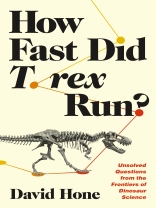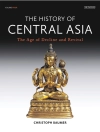The revolution in science that is transforming our understanding of dinosaurs
In just the past twenty years, we have learned more about dinosaurs than we did in the previous two centuries. This book describes the extraordinary advances in palaeontology that are beginning to solve many of the mysteries surrounding these marvelous prehistoric creatures, including their mating habits, ways of communicating, skin color, migration patterns, and extinction. How did dinosaurs rear their young? What did they eat? What did T. rex actually do with those tiny arms? David Hone draws on his own discoveries at the forefront of dinosaur science to illuminate these and other questions.
Each chapter in this lively and informative book covers a key topic in dinosaur science, such as origins, diversity, evolution, habitats, anatomy, behaviour, ecology and dinosaur descendants—the birds. For each topic, Hone discusses the history of what palaeontologists thought in the past, the new insights we are gleaning from recent fossil finds and the latest technologies and the gaps in our knowledge that still remain. He shares his own predictions about the research areas that may produce the next big ideas in dinosaur science and addresses the unknowns we may never solve.
How Fast Did T. rex Run? reveals everything we now know about dinosaurs—and everything we don’t—and charts thrilling new directions for tomorrow’s generation of dinosaur scientists.
Over de auteur
David Hone is a palaeontologist and Reader at Queen Mary University of London. He has written about dinosaurs for leading publications such as
National Geographic,
The Guardian,
The Telegraph and
Huff Post. His books include
The Tyrannosaur Chronicles: The Biology of the Tyrant Dinosaurs.












